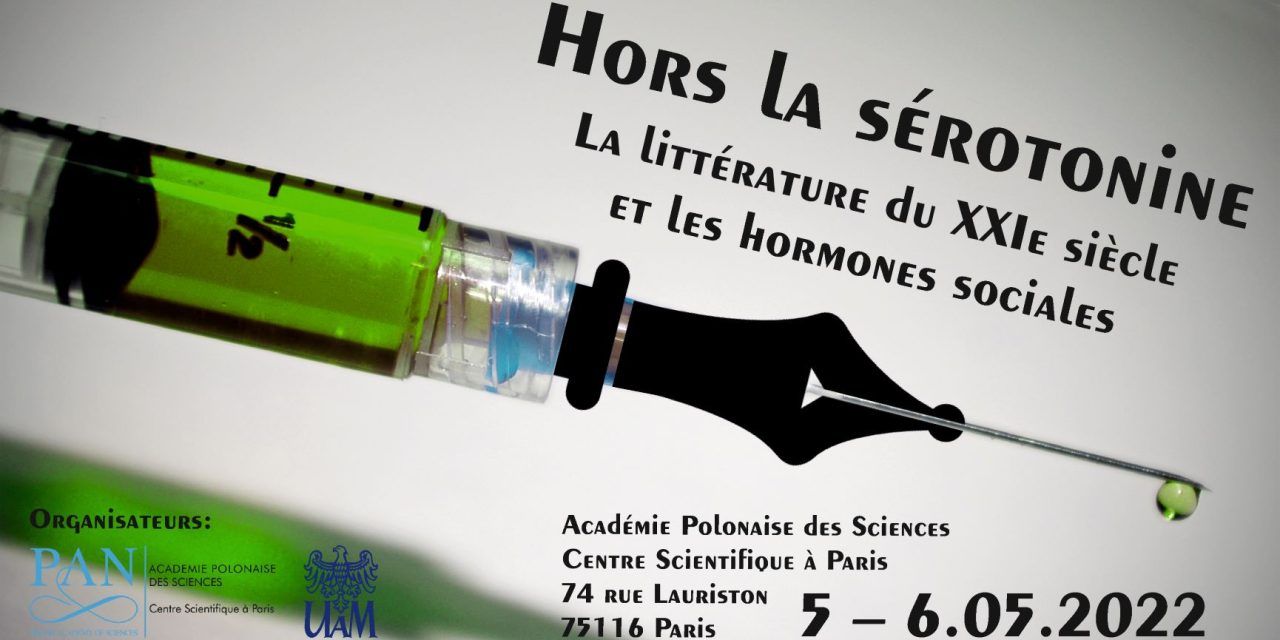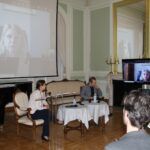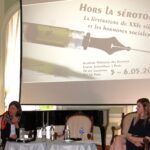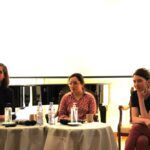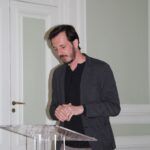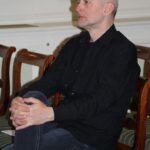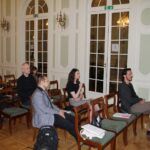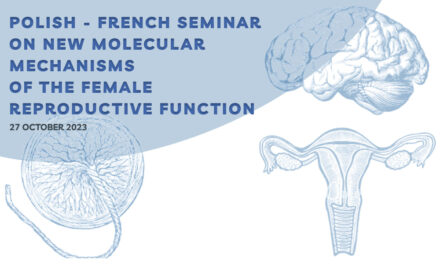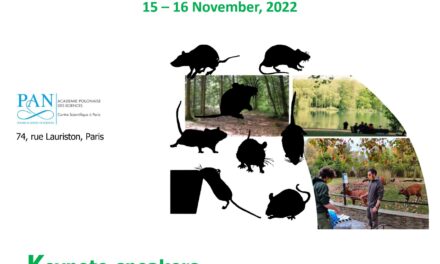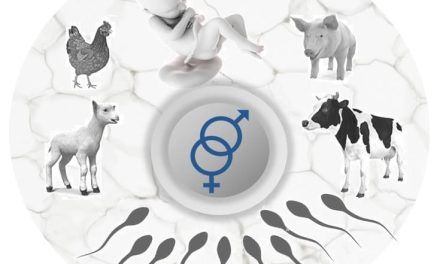Przemysław Czapliński, Alicja Chwieduk: Can adrenaline and oxytocin be mixed?
Report from the scientific conference “Not only serotonin. European literature of the 21st century and social hormones”
At the end of the 1970s, Jean Baudrillard published a book in which he proclaimed “the end of the social sphere” (Á l’ombre des majorités silencieuses ou la fin du social, 1978). The philosopher noticed that in European democracies, the “demos” or “people”, i.e. the subject who, by electing power, should decide how politics is conducted, was gradually disappearing. “Demos” is disappearing because it is giving way to “the masses” – an unorganised and unpredictable collectivity. Politicians count with it and solicit its vote only until it remains the “silent majority”. In this sense, the only subject influencing politics is a semi-present, non-concrete subject, materialising in the unpredictable way. Three decades later, Alain Tourain, in his book Après la crise (2010) and later in his work La fin des sociétés (2013), stated that “society does not exist”. Since society as a relative unity is no longer formed by the institutions developed in the 19th century and functioning throughout the 20th century – education, a common cultural tradition, an imagined republic.
What exists after the end of the “social sphere” and the “end of society”? How does a collectivity that is not a society function? What do we have in common? Do we recognise common values despite our differences? Or are we united not by views but by emotions – shared sympathies, objects of adoration, a sense of pride? But if we have moved from political democracies to affective democracies, it means that modern states have to deal with increasingly strong negative emotions – resentment, hatred, loathing, anger, rage. These questions inspired the conference ‘Not only serotonin. European literature of the 21st century and social hormones” held on 5-6 May 2022 at the Polish Academy of Sciences – Scientific Centre in Paris. It was organised by Alicja Chwieduk and Prof. Przemysław Czapliński representing the Centre for Open Humanities (Adam Mickiewicz University in Poznań) and Szymon Trzybiński representing the Polish Academy of Sciences – Scientific Centre in Paris.
The conference – opened by a short speech delivered by the Rector of the Adam Mickiewicz University in Poznań, Prof. Bogumiła Kaniewska – was attended by doctoral students and researchers from Poland, Germany, France and Belgium, primarily representing the humanities – literary and cultural studies. They addressed initial questions and presented a number of hypotheses.
The papers were organised in four parts:
Part I: The literary-hormonal system
Part II: Hormones and poetry
Part III: Hormones and literary criticism
Part IV: Hormones and history
It should be added that after the first two parts (the evening of 5 May), conference participants watched a recording of Lagma’s theatrical performance, while after the performance they talked (online) with the artists. The conference produced hugely interesting results. First and foremost, it served to reflect on what role hormones play in the existence of a “society after the end of society”. An analysis of the literature shows that almost every writer ‘glues’ society and explains its conflicts in the language of some hormones. The authors of the papers examined in their research whether 21st century European literature can be read from a hormonal perspective and whether society can be interpreted in this way. Hormones were treated in the papers as a layer deeper than emotions and increasingly desired by politicians.
Literary endocrinology – a new methodological and historical land – thus prescribes the study of hormones in relation to the discoveries of the sciences and, at the same time, in relation to the hormonal politics of particular eras or states. The conference argued that it is possible to analyse the political impact on the collective hormonal system and the history of modern society told from the perspective of hormones. At the same time, it seems most important that the papers recognised the increasing interference with the hormonal economy as a threat to both the individual and society. It is symptomatic that the researches find the possibility of a resistance to hormonal policies in a literary immune system as well as in a potential opportunity to achieve homeostasis between the hormone of fight and the hormone of cooperation.
From this perspective, it is possible to wish for a communal anger for oneself and others – as expressed by Stéphane Hessel in the celebrated booklet Time of Outrage! (translated by Piotr Witt, published by Oficyna Naukowa, 2011, pp. 10-11): “I wish you all, I wish each of you, to have your own reason for indignation. […] When something outrages you, as I was outraged at Nazism, then you become militant, strong and committed. You join the current of history and this great current of history is to continue to flow thanks to each of you. This current is moving towards greater justice […]”.
Organising committee
- Prof. Przemysław Czapliński (Open Humanities Centre of the Adam Mickiewicz University in Poznań)
Alicja Chwieduk (Faculty of Polish and Classical Philology of the Adam Mickiewicz University in Poznań)
Szymon Trzybiński (Polish Academy of Sciences – Scientific Centre in Paris) - Date of the conference: 5-6 May 2022
Place of the conference: Polish Academy of Sciences – Scientific Centre in Paris
Languages of the conference: French, English, Polish




